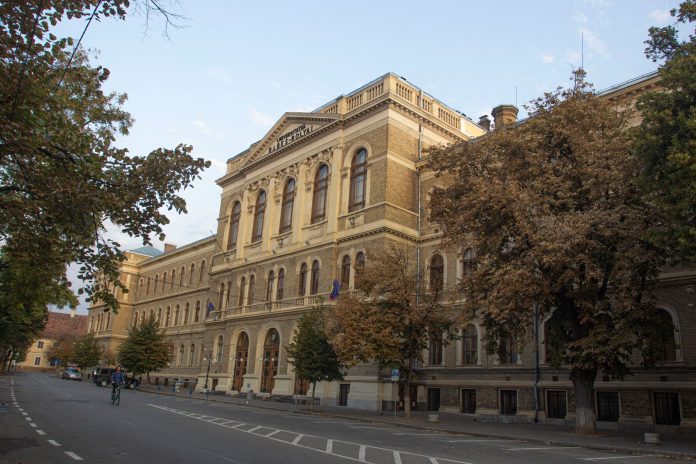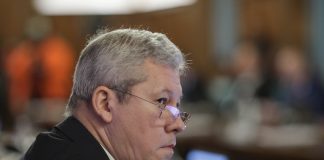A group of researchers from Babes-Bolyai University (UBB) in Cluj-Napoca demonstrated the existence, on the territory of Romania, of a species of crocodile that lived here in the past and is present today in southeast Asia, informs a press release sent by the university, according to Agerpres.
„A group of paleontologists from the Babes-Bolyai University in Cluj-Napoca (Vlad A. Codrea, Venczel Marton: Paleotheriology Laboratory), Tara Crisurilor Museum Oradea (Venczel Marton) and the Brukenthal Museum in Sibiu (Nicolae Trif) demonstrated the existence of a type of crocodile fossil vertebrate from the gavial group on the territory of Romania. Crocodiles from the gavial group live today in south and southeast Asia, being semi-aquatic,” says the source.
The most famous of them is the Indian gavial, the so-called gharial (Gavialis gangeticus). What distinguishes them are the elongated and narrow snouts, equipped with a multitude of interlocking teeth, specialized for their specific food: fish.
„Based on some teeth from the rocks in Turnu Rosu (formerly Porcesti), researchers specialized in the research of vertebrate fossils established that such crocodiles were present in that area in the Paleogene, about 34-48 million years ago. In those times, warm and shallow waters of the Tethys Ocean bathed the freshly emerged mountains that today belong to Fagaras Mountains. The isolated teeth of crocodiles there have been collected for over a century, but they have never been studied carefully enough. They come from several individuals, with at least five morphological forms being distinguished on the basis of the existing fossils. Based on the particular features, they were attributed to some primitive gavial forms, found at the beginning of their geological history,” the press release states.
According to the researchers, their fossils in southern Transylvania have a very special importance for two reasons: on the one hand, they prove the presence of a new group of fossil vertebrates in Romania, and on the other, they allow the assumption of a migration from northwest Africa to our lands.
„The mentioned research allows us to assume that they come from a close ancestor of Maroccosuchus, a crocodile known from the western area of the Tethys Ocean. The extinction of these crocodiles from Romania in the times that followed the deposition of the rocks from Turnu Rosu was probably generated by the climatic changes that occurred at the border between the Eocene and the Oligocene, when we can talk about a great climatic crisis, which triggered the appearance of the first ice caps in Antarctica. It is as clear as possible that fossil research in Romania still has many unknown aspects to be revealed. The results were published in the North Western Journal of Zoology,” the UBB press release states.
Agerpres


